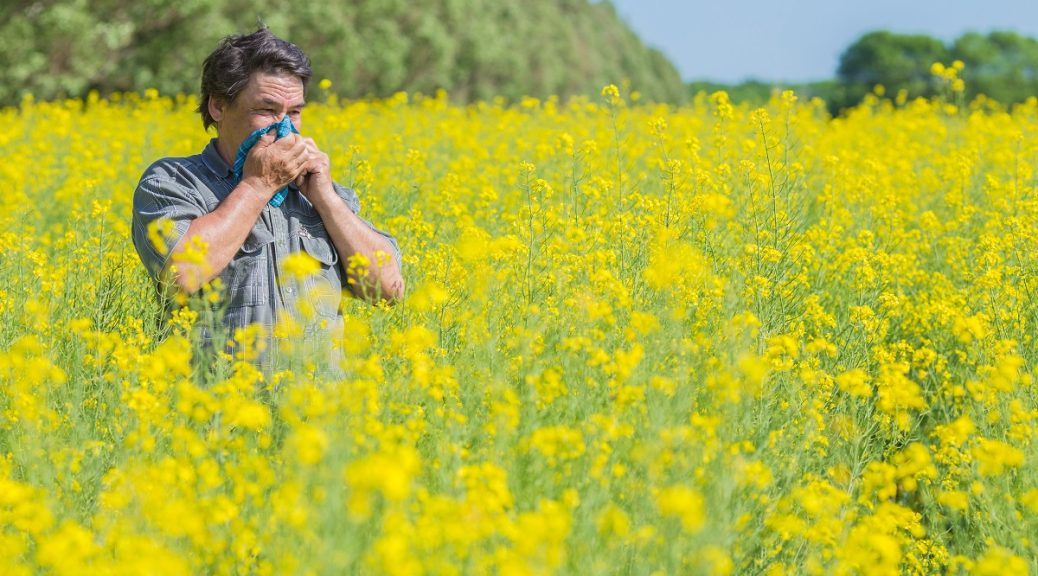
Supplements for Hay fever
By medical nutritionist Dr Sarah Brewer, an expert in food, herbs and supplements
Hay fever – also known as seasonal allergic rhinitis – makes life a misery for the one in five people who are sensitive to grass and tree pollens. As well as itchy eyes, a runny or stuffed-up nose, sneezing and sore throat, it can cause sinusitis, worsen eczema or asthma, and stop you sleeping.
Symptoms develop when pollen lands on the delicate mucus membranes of the nose, mouth and eyes and is wrongly identified by the immune system as at threat, resulting in the release of histamine. Histamine heightens your immune response by causing blood vessels to dilate and speeds the arrival of other immune factors into the area. The resulting irritation, inflammation and swelling produces the usual symptoms of hay fever with runny nose, stuffiness, sneezing and itchy conjunctivitis.
Corticosteroid nasal sprays that damp down inflammation, and oral antihistamines, are the mainstay of treatment. Some supplements can also complement their actions.
Vitamin C is one of the best natural antihistamines and is also an antioxidant to help damp down inflammation. Taking 2g vitamin C per day can reduce airway reactivity to histamine and lower histamine levels by over a third. Vitamin C is often combined with bioflavonoids such as quercetin which have a similar antihistamine action. Doses of 2g vitamin C per day can be used short-term to reduce allergic symptoms. The dose you can tolerate may be limited by indigestion or by bowel looseness (which is why the upper safe level is suggested as 1g per day for long-term use). If you experience these side effects, cut back the dose or switch to the ‘body-ready’ form known as ester-C which is non-acidic.
Luffa complex is a tincture containing extracts from seven tropical herbs: sponge cucumber (luffa), heartseed, American spikenard, golden thryallis, chapparal, okoubaka and toothpick weed, which can relieve hay fever symptoms in 75 percent of cases.
Pycnogenol is derived from the bark of the French maritime pine tree. Its antioxidants can block histamine release as effectively as the commonly used hay fever drug, sodium cromoglicate. It can also be used as a preventative starting seven to eight weeks before the onset of the hay fever season.
Bromelain is an enzyme extracted from pineapples that is used to reduce pain, swelling and inflammation. It also thins mucus so it’s easier to shift, to help reduce nasal congestion. In one study, four out of five people taking bromelain for hay fever enjoyed complete relief from nasal swelling and inflammation compared with only half those taking placebo.
Garlic is a powerful antioxidant that has also been used for centuries to help control the symptoms of hay fever, and for its decongestant properties.
When going out, dab petroleum jelly or nasal hay fever balms inside nostrils to trap pollen. Wear wrap-around sunglasses to protect your eyes. Keep windows and doors shut, especially in the bedroom. Use a negative ionizer indoors to settle airborne pollen.
A bout Dr Sarah Brewer
bout Dr Sarah Brewer
Dr Sarah Brewer is a medical nutritionist and an expert in food, herbs and supplements. She qualified from Cambridge University with degrees in natural sciences, medicine and surgery. After working in general practice, she gained a master’s degree in nutritional medicine. Sarah is a licensed medical doctor, a registered nutritionist and a registered nutritional therapist.
Subscribe to her newsletter to get a FREE 46-page PDF Do You Need A MultiVitamin? at nutritionupdates.subscribemenow.com.
For more information on diet and supplements, visit Dr Sarah Brewer’s websites at www.DrSarahBrewer.com, www.ExpertHealthReviews.com and www.MyLowerBloodPressure.com.